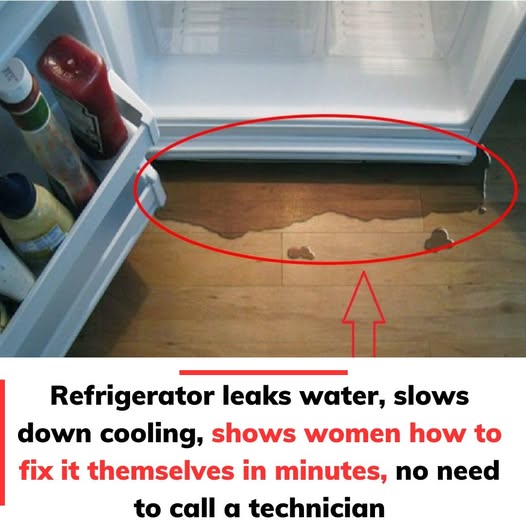ADVERTISEMENT
er filtration system for the ice maker or water dispenser. If the filter is clogged or incorrectly installed, water can leak inside the fridge, causing leaks and reduced cooling efficiency.
Solution: Check the water filter for any blockages or cracks. Replace the filter if it’s old or damaged. Be sure to follow the manufacturer’s instructions for proper installation.
Causes of Slow Cooling in Refrigerators
- Overloading the Fridge: When a refrigerator is overfilled with food, there’s less airflow inside, which can prevent the fridge from cooling efficiently. Proper airflow is essential for maintaining a consistent temperature.
Solution: Ensure that the fridge is not overcrowded and that food is organized in a way that allows air to circulate freely. Avoid blocking vents with large items.
- Thermostat Setting Issues: If the refrigerator’s thermostat is set too high, it can cause the appliance to not cool properly. This may result in food spoiling faster and water condensing inside the fridge.
Solution: Check the temperature settings and ensure they are within the recommended range, typically around 37°F (3°C) for the refrigerator and 0°F (-18°C) for the freezer.
- Low Refrigerant Levels: A refrigerator relies on refrigerant to keep the temperature low. If the refrigerant levels are too low due to a leak or malfunction, the fridge will struggle to cool efficiently, which can also lead to water accumulation.
Solution: Low refrigerant levels require the expertise of a professional technician. If you suspect this is the issue, it’s best to call in a repair expert to fix the refrigerant leak and recharge the system.
- Faulty Compressor: The compressor is the heart of the refrigeration cycle. If it’s malfunctioning, the fridge won’t cool properly, leading to warm temperatures inside the unit.
Solution: If you hear unusual noises or notice that the fridge isn’t cooling properly, it could be a sign of a faulty compressor. This is a complex repair and should be handled by a professional technician.
Preventing Future Issues
- Regular Maintenance: Regularly clean your fridge, defrost it when necessary, and inspect the seals and drain for any issues.
- Monitor Temperature: Check the temperature inside your fridge periodically using a thermometer to ensure it’s cooling properly.
- Professional Help: If you’re unsure of the cause of the problem or if repairs are needed, don’t hesitate to call a professional repair technician to fix the issue before it becomes worse.
Conclusion
Water leakage and slow cooling in your refrigerator can be caused by a variety of factors, from clogged defrost drains to faulty components like the compressor or evaporator fan. By identifying the root cause of the issue and taking the appropriate steps to fix it, you can restore your refrigerator’s performance and prevent future problems. Regular maintenance and prompt attention to any signs of malfunction will help you keep your appliance running smoothly for years to come.
ADVERTISEMENT
ADVERTISEMENT
